
The Birth of Multimessenger Astronomy by Barry Barish
Barry Barish, awarded with the nobel Prize 2017,
visits the IFIC and receives the Honoris Causa from Universitat de València
Barry Barish visits the IFIC
Barry Barish, Nobel Laureate in Physics and 2017 Princess of Asturias Award for Technical and Scientific Research for his contribution to the detection of gravitational waves with the LIGO observatory, visited the Institute of Corpuscular Physics (CSIC-UV) and offered a lecture at the Marie Curie Auditorium of the Parc Científic last May 30 in which he presente the current situation and the advantages promised by the birth of Multimessenger Astronomy, a breakthrough that has meant a paradigm shift in the study of astronomy.
In recent decades, astronomical advances have been the result of new instruments that have enabled observations across the entire electromagnetic band, from radio astronomy to the visible light spectrum and high-energy gamma rays. The recent discovery of gravitational waves and the performance of very large-scale neutrino experiments promise to expand astronomy again, using messengers beyond electromagnetic radiation. This is comparable to the discovery of the moons of Jupiter by Galileo, who, using a primitive telescope, made a great discovery, which was the birth of modern astronomy.
During the conference entitled: «The Birth of Multimessenger Astronomy», Barry Barish, presented the current situation of this new field of study, and explained why it is presented as the promise of astronomy.
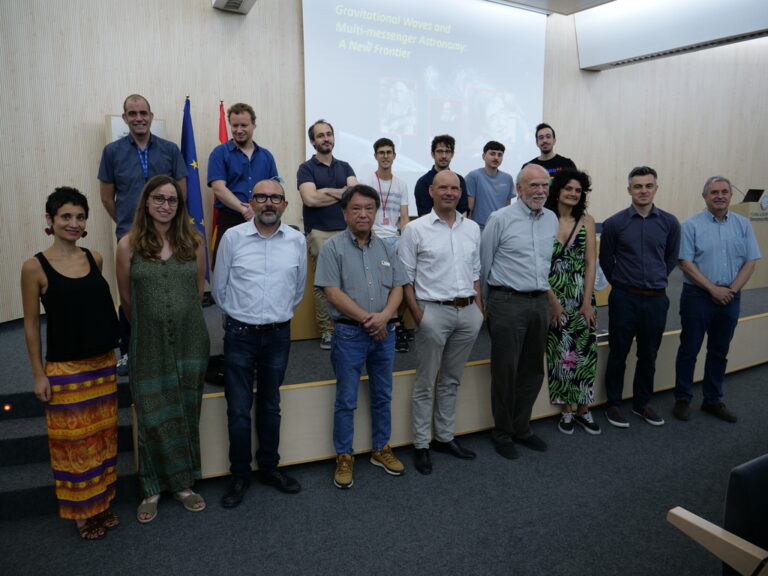
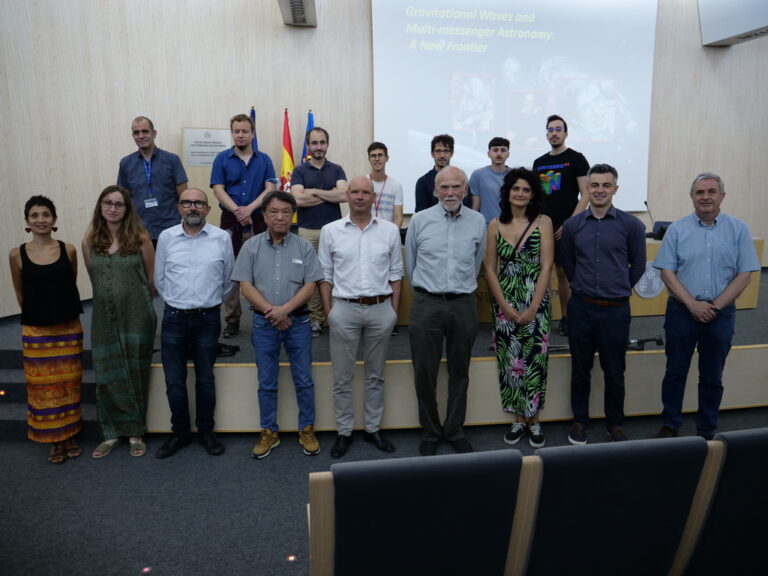
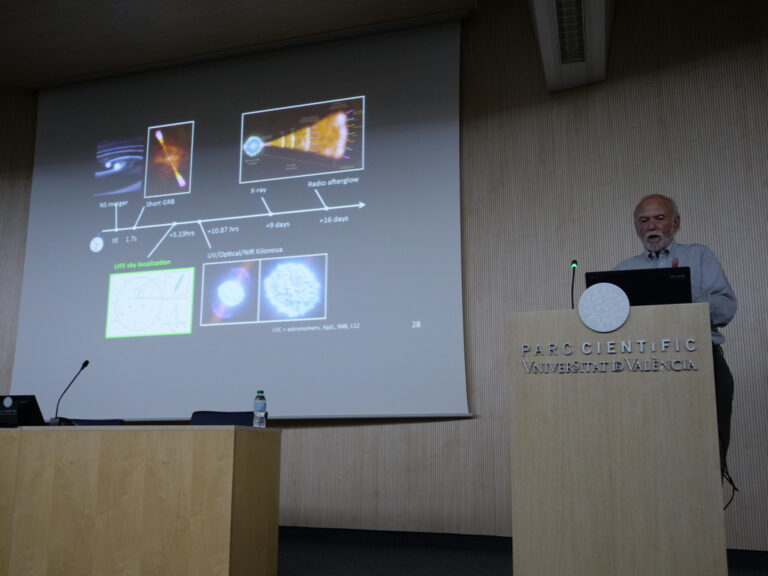
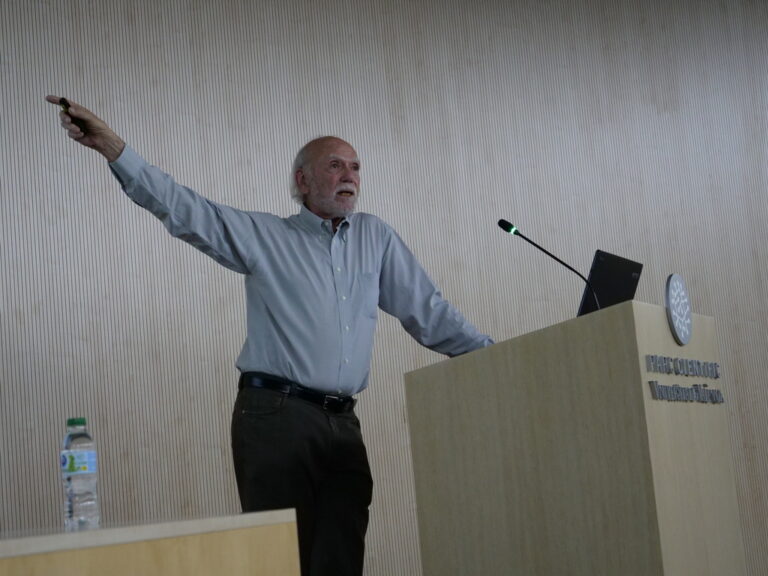
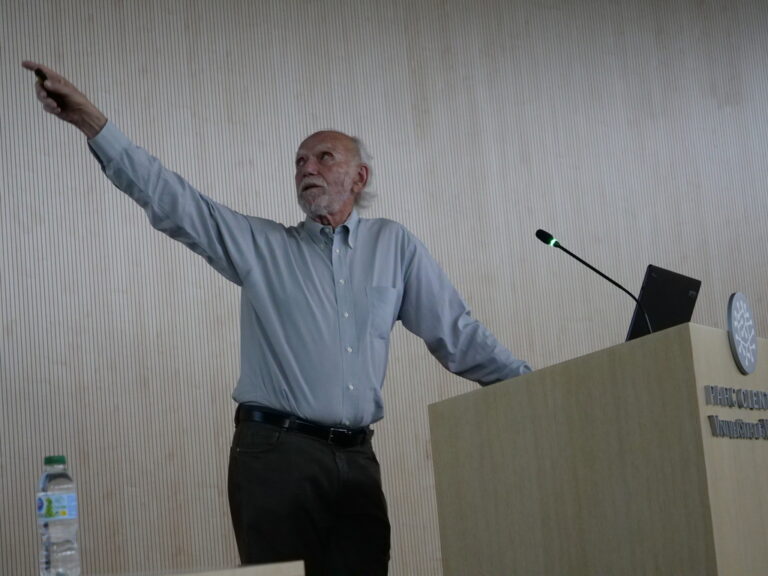
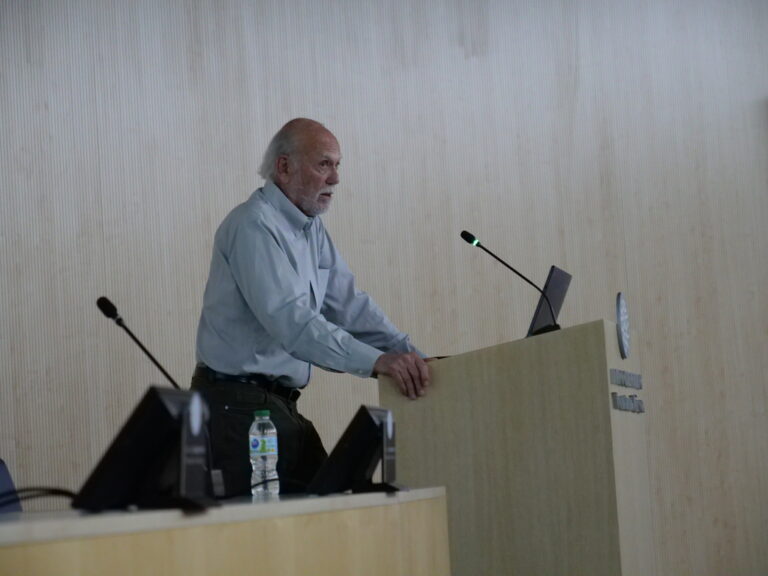
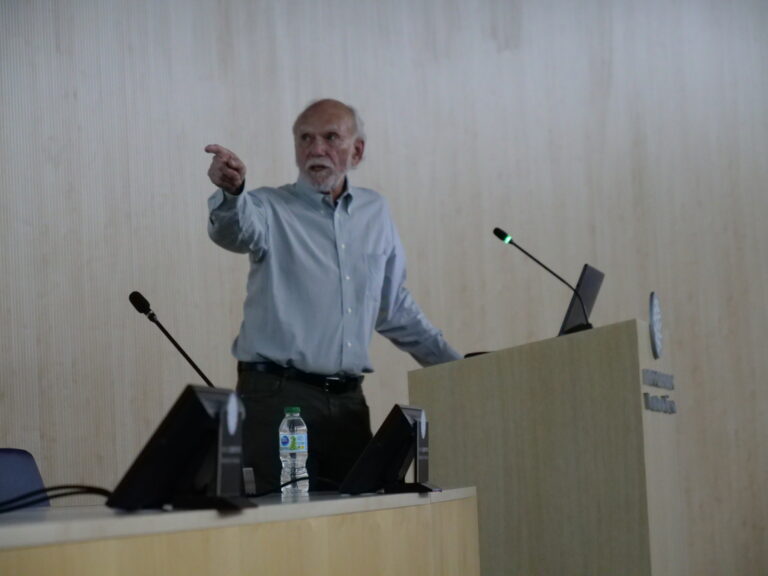
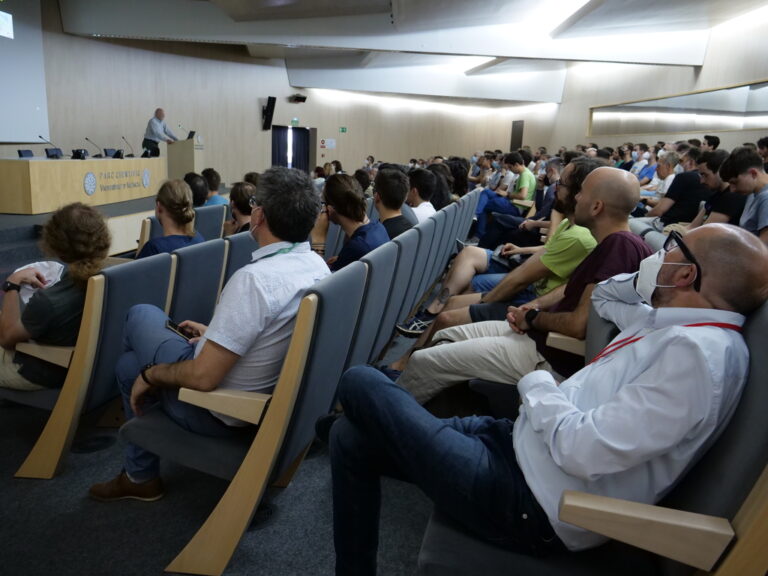
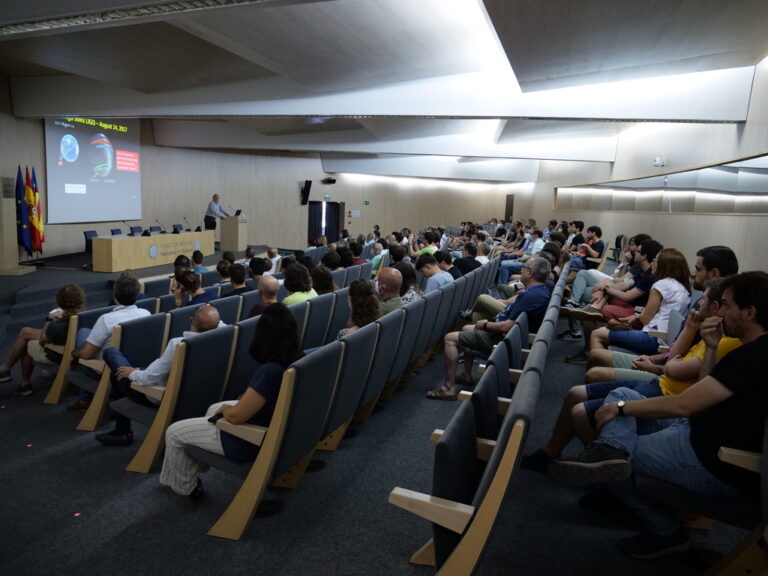
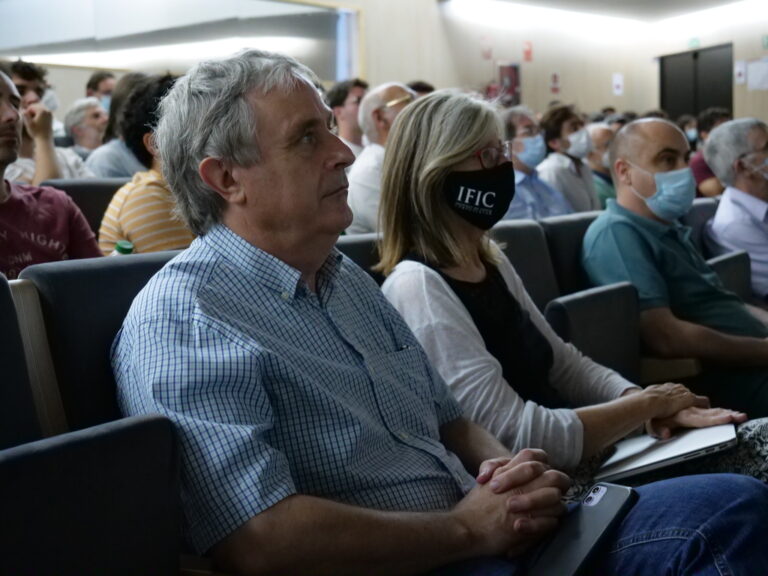
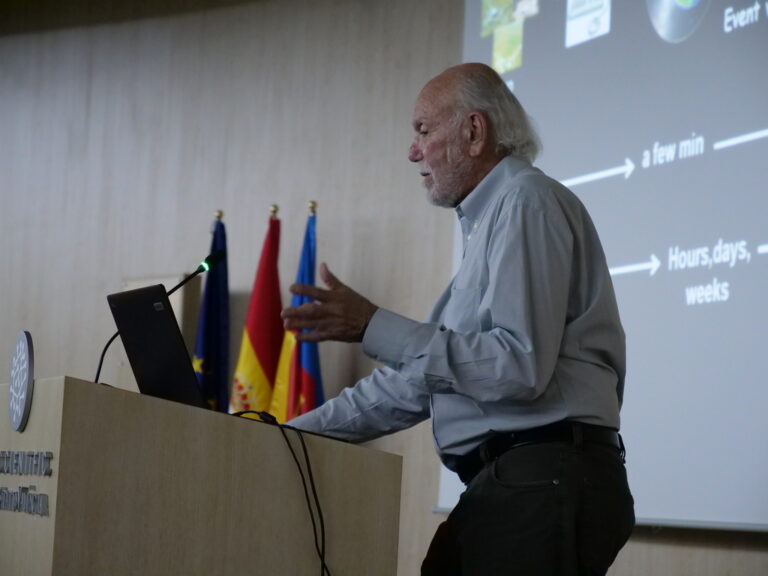
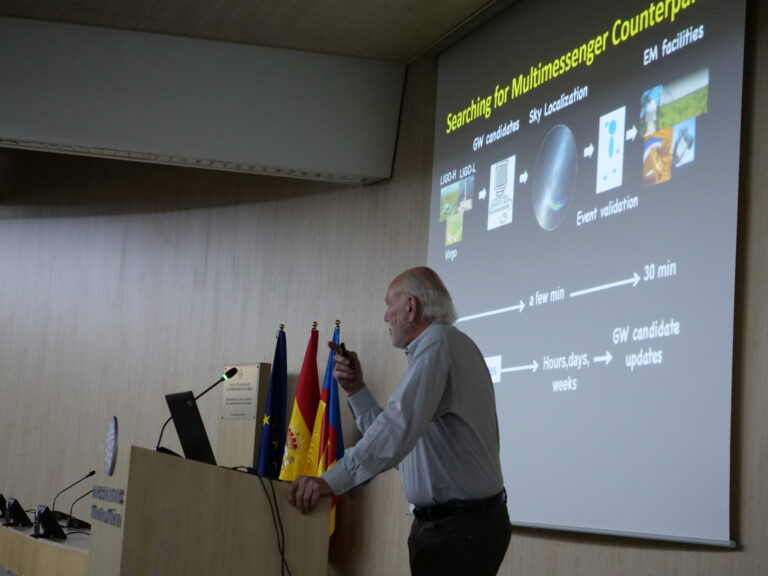
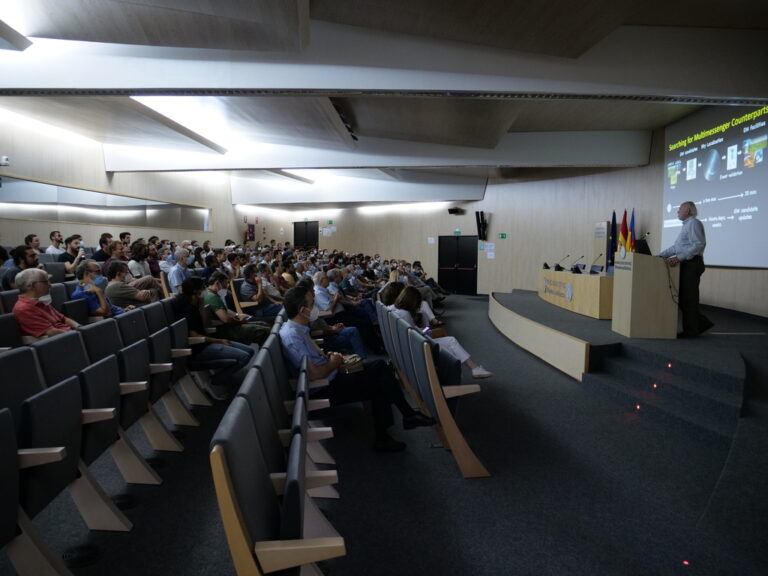
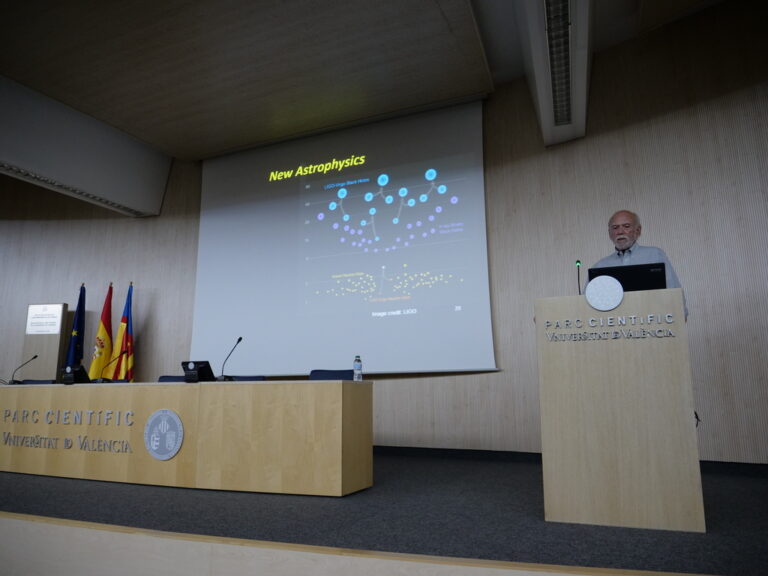
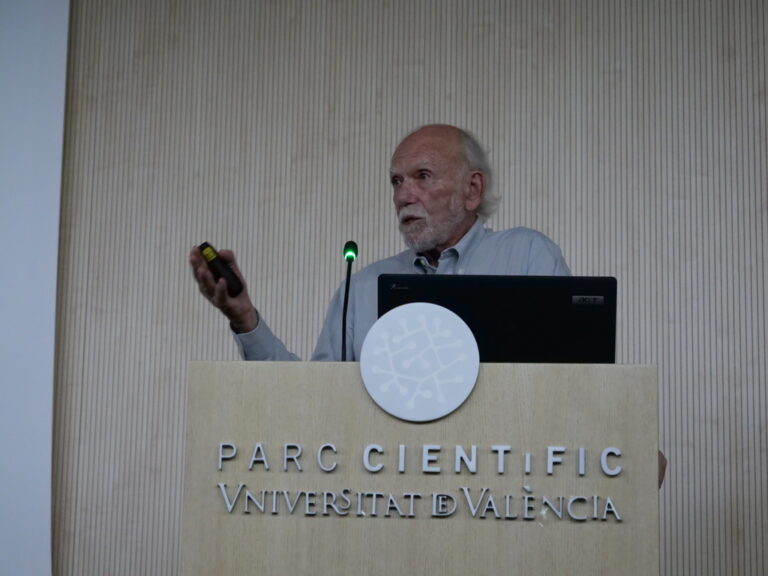
Barry Barish receives the Honoris Causa by University of Valencia.
The Paraninfo of the emblematic building of La Nau has hosted the solemn ceremony of the awarding of the Doctorate «Honoris causa» to Professor and researcher Barry Clark Barish for his extensive study in the field of experimental physics, and, in particular, for the discovery of gravitational waves, for which in 2017 he won the Nobel Prize in Physics.
The rector of the Universitat de València, Mª Vicenta Mestre, has presided over the solemn ceremony, and the professor and institutional delegate of the Consejo Superior de Investigaciones Científicas in the Valencian Community, Juan Fuster, has been in charge of reading the laudatio. The investiture was attended by a large representation of the Board of Directors of the University, most of the deans of the institution, as well as members and representatives of the different groups of the university community.
Header picture credits:
Scientific visualization: T. Dietrich (Potsdam University and Max Planck Institute for Gravitational Physics), N. Fischer, S. Ossokine, H. Pfeiffer (Max Planck Institute for Gravitational Physics), T. Vu. Numerical-relativity simulation: S.V. Chaurasia (Stockholm University), T. Dietrich (Potsdam University and Max Planck Institute for Gravitational Physics)
(small modification by the web administrators to make it fit in the header)
Comparte esto:
- Haz clic para compartir en X (Se abre en una ventana nueva) X
- Haz clic para compartir en Facebook (Se abre en una ventana nueva) Facebook
- Haz clic para compartir en LinkedIn (Se abre en una ventana nueva) LinkedIn
- Haz clic para compartir en Reddit (Se abre en una ventana nueva) Reddit
- Haz clic para compartir en Telegram (Se abre en una ventana nueva) Telegram
- Haz clic para compartir en WhatsApp (Se abre en una ventana nueva) WhatsApp
- Haz clic para enviar un enlace por correo electrónico a un amigo (Se abre en una ventana nueva) Correo electrónico




Deja una respuesta